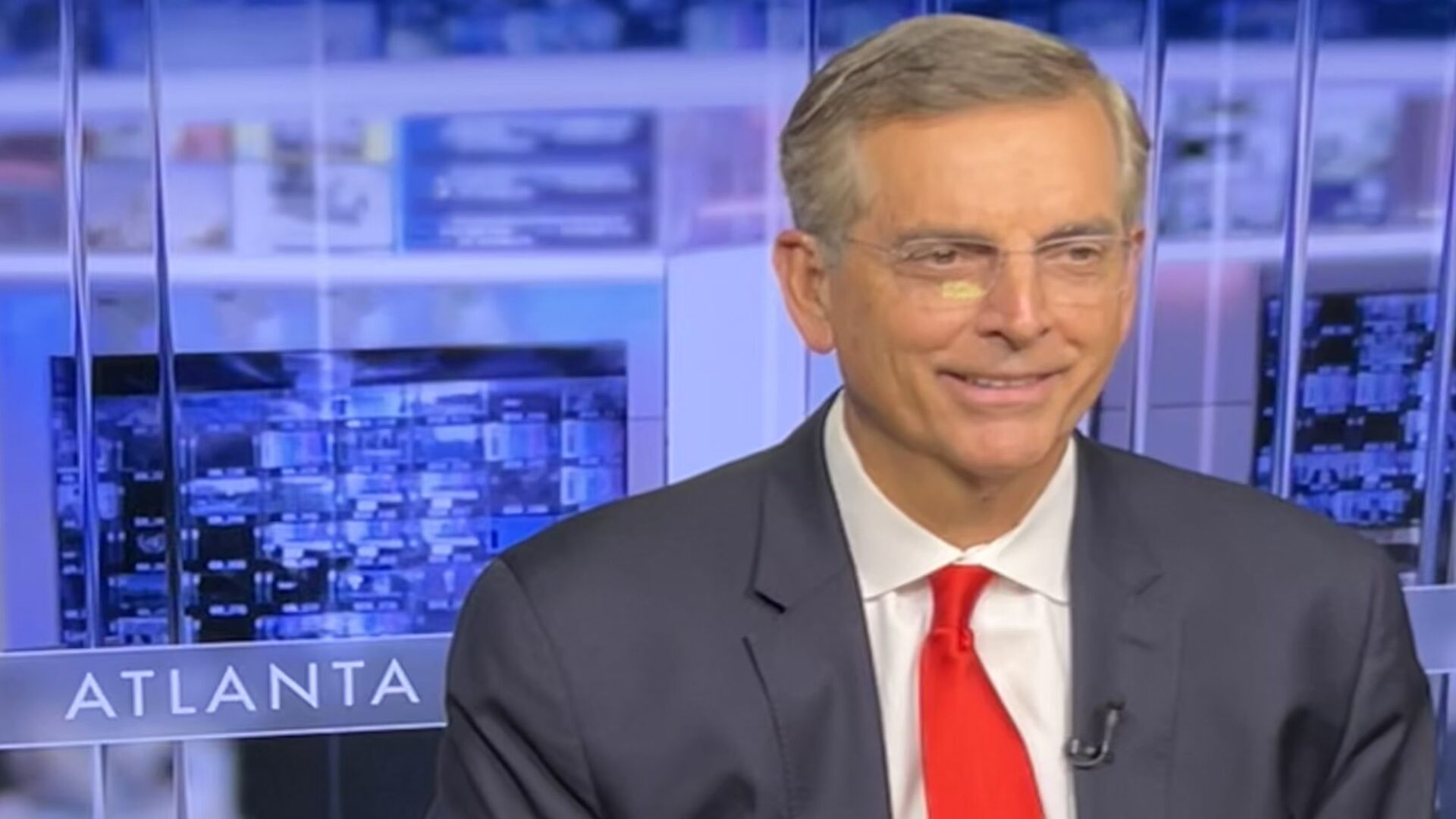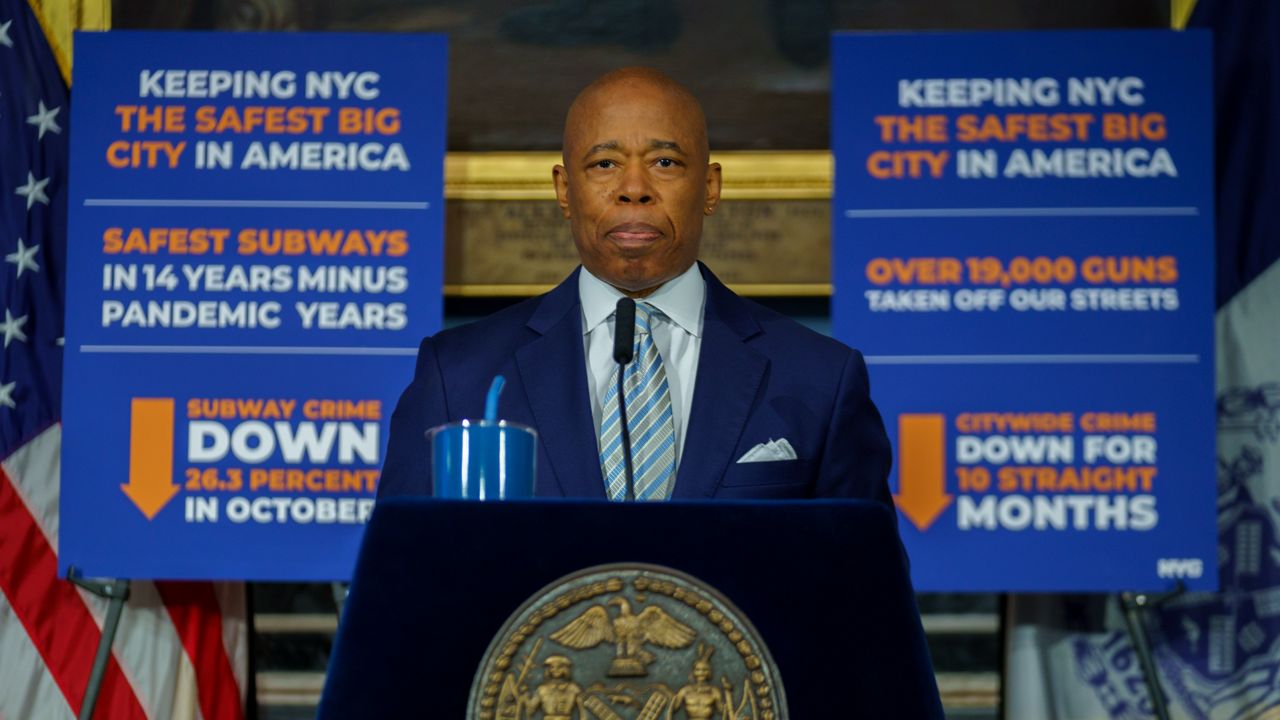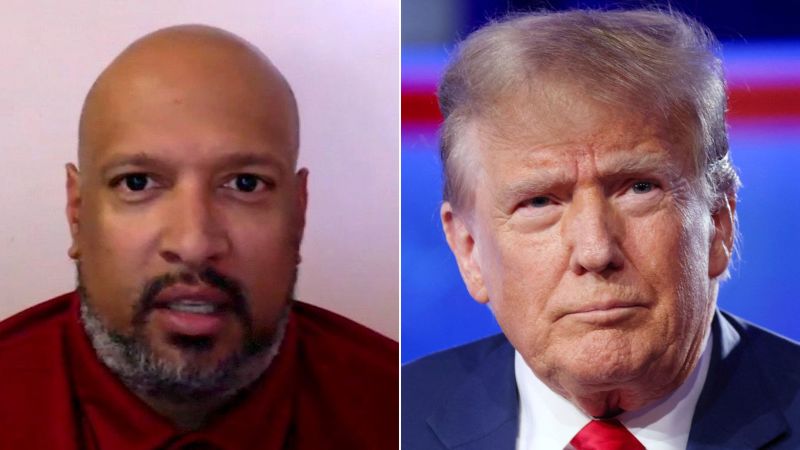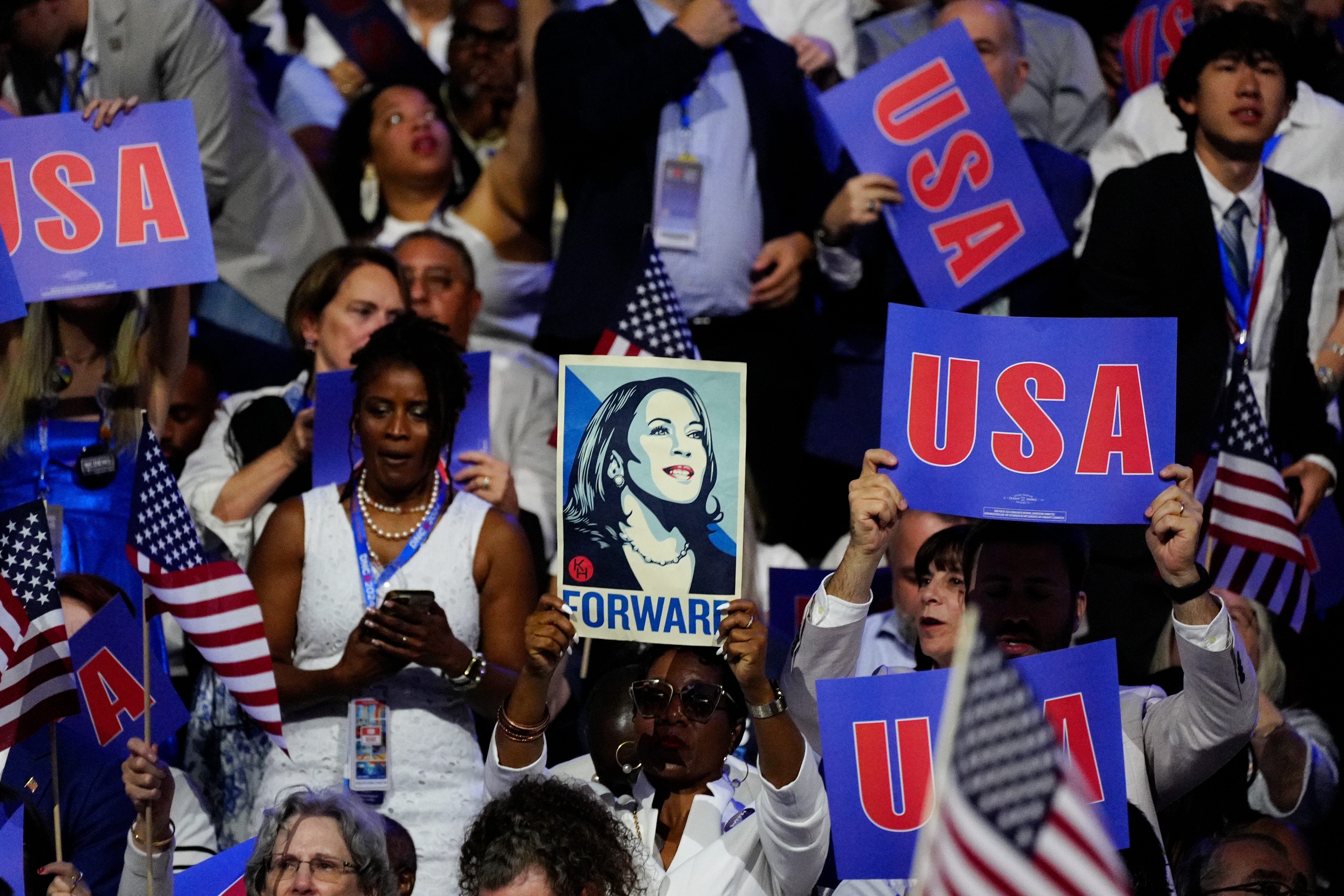- BlackVoter.Org
- Posts
- BLACKVOTER.ORG
BLACKVOTER.ORG

Georgia's election results are set for certification, with Secretary of State Brad Raffensperger hailing it as the "safest, most secure" election ever. All 159 counties are on track to confirm their results, showcasing a record voter turnout of 72.
7%. Former President Donald Trump leads the presidential race with 50.
74% of the votes, while Vice President Kamala Harris follows closely behind at 48.52%.
Raffensperger praised recent election reforms for ensuring a smooth process, emphasizing that only American citizens vote and that photo IDs are now mandatory for voting. With the deadline for recount requests approaching, he expresses confidence in the acceptance of the results, highlighting the importance of election integrity for democracy.
As Georgia moves forward, there’s an optimistic air about the efficiency and security of the electoral process.

In a surprising twist in U.S.
politics, President-elect Donald Trump has tapped Elon Musk and Vivek Ramaswamy to spearhead the newly formed "Department of Government Efficiency" (DOGE), cleverly named after the meme-inspired cryptocurrency. This initiative aims to streamline federal spending and cut unnecessary bureaucracy.
Both Musk, the billionaire head of Tesla and SpaceX, and Ramaswamy, a biotech entrepreneur and former presidential candidate, are seen as allies of Trump, with their entrepreneurial backgrounds promising a fresh approach to governance. Musk's involvement raises eyebrows regarding potential conflicts of interest, considering the federal agencies overseeing several of his companies.
The announcement has ignited conversations about the impact of their initiatives on government waste and efficiency. As they prepare to shake things up, Ramaswamy vowed to challenge the status quo, signaling that significant changes might be on the horizon for federal operations.

New York City Mayor Eric Adams strongly criticized the federal immigration system during a recent press briefing, calling it both a "failure" and an "embarrassment." As the city grapples with an influx of over 223,000 migrants since spring 2022, Adams emphasized the burden this places on working-class New Yorkers, urging the need for a comprehensive immigration reform.
He voiced frustration over insufficient federal support and expressed concern about the potential for mass deportations under the incoming Trump administration. Adams, who previously condemned his party’s disconnect with voters, stressed that his approach centers on humane treatment for all residents, rather than seeking favor from Trump.
He insists that the focus should be on real solutions, rather than reactive policies that merely shift the problem. As the streets of NYC brace for the implications of a Trump presidency, Adams remains adamant about a need for change in immigration policy.

Elon Musk, the world's richest man and a transformative force in tech, is making waves in American politics, aligning himself closely with President-elect Donald Trump. After years of political detachment, Musk's increasing discontent with government regulations and perceived slights—particularly during the Biden administration—has driven him to the forefront of Trump's campaign.
With a newly announced role leading the "Department of Government Efficiency," Musk is poised to have substantial influence, echoing his goals to cut federal red tape and spending. This unexpected partnership signals a potential era where billionaire interests, particularly those with sway like Musk's, could significantly shape federal policies.
Observers are keenly watching how Musk’s tech-driven approach might clash with the complexities of government bureaucracy. As Musk adopts a political persona, the stakes for both him and the nation are particularly high, reshaping not only the political landscape but also Musk's own ambitions.

Recent research reveals that Latinos primarily voted for Vice President Kamala Harris in the recent elections, especially in Nevada. While exit polls suggested a significant share of the Latino vote went to Donald Trump, a more in-depth poll conducted by BSP Research found that 62% of Latino voters nationwide supported Harris, with 64% backing her in Nevada.
Although Trump’s gains among Latino voters were noted, leaders emphasize the danger in oversimplifying election outcomes by focusing solely on this demographic. Key issues for Latino voters included inflation, jobs, and housing, with a notable preference for increased border security coupled with pathways to citizenship for Dreamers.
In Nevada, 81% supported a measure to protect abortion rights, showing a clear alignment with Democratic candidates. As the Latino electorate grows, understanding their motivations will be crucial for future elections.

In the wake of the recent election results, columnist Carlton Winfrey delves deep into the surprising re-election of Donald Trump, which raises questions about American identity and values. Despite Vice President Kamala Harris's impressive qualifications, voters opted for a controversial figure with a troubling past, revealing entrenched issues of racism, sexism, and misinformation in the electorate.
Winfrey highlights how Trump capitalized on these societal divides, particularly among white women voters, leading to his resurgence. He emphasizes the need for white voters to confront their own biases and engage in anti-racist work to foster meaningful change.
This election cycle echoes the sentiments of the late Rep. Elijah Cummings, reminding us that while these troubling aspects may reflect who we are, they don't have to define who we can become.
As America heads into the future, it must grapple with these realities to reshape its political landscape more inclusively.

Join Rutgers-Newark on November 14 for an eye-opening conversation with Tennessee Representative Justin Pearson, a dynamic advocate for gun control and youth activism. Pearson, who made headlines after being expelled by state Republicans for protesting against inaction on gun violence, embodies the urgent call for change amidst today's pressing issues.
As the inaugural guest of the Sheila Y. Oliver Center for Politics and Race in America, he will engage in a spirited discussion about politics, racism, and the impact of Gen Z on our democracy.
This event promises to inspire future leaders and encourage civic participation in a time when it’s needed most. Don’t miss this chance to hear from a passionate voice for justice and a champion of democracy! The event kicks off at 6 p.
m. in the Center for Law and Justice, Classroom 090.

In a stirring interview, former Capitol police officer Harry Dunn expressed his outrage at the prospect of Donald Trump potentially pardoning those involved in the January 6 insurrection. Dunn candidly described such an act as “a slap in the face” to law enforcement and the democratic process, highlighting the trauma experienced by officers on that harrowing day.
He emphasized the need for accountability and the importance of protecting the rule of law, arguing that pardoning the rioters would undermine the severity of the events that unfolded. Dunn's powerful remarks reflect the ongoing debate surrounding the January 6 attack and the implications of political decisions made in its wake.
As the nation reflects on that day, his call for justice resonates, reminding us all of the sacrifices made to uphold democracy.

A recent poll revealed that despite a noticeable shift among Latino men towards Republican candidates, a majority still backed Democratic nominee Kamala Harris in the 2024 election. The findings, released after Donald Trump secured a second term, showed that 56% of Latino men favored Harris over Trump’s 43%.
While exit polls suggested a broader trend of Latino voters moving right, this new survey counters those claims, indicating substantial support for Democrats among minorities, particularly in critical battleground states. The poll also highlighted that key issues such as inflation and healthcare were top priorities for all voters surveyed, with many believing Democrats would handle these concerns more effectively.
Notably, about two-thirds of Latino women voted for Harris, underscoring the ongoing loyalty of this demographic despite emerging trends. Ultimately, the election was characterized by a slight shift toward the GOP across various racial groups, but Democrats still maintained considerable support among Latino voters.

In the thought-provoking article from Christianity Today, historian Sarah Irving-Stonebraker’s journey unfolds, detailing her conversion from atheism to Christianity while grappling with a sense of historical disconnection. She argues that in our current "Ahistoric Age," many fail to recognize themselves as part of a larger historical narrative.
Irving-Stonebraker believes that all Christians, not just historians, have a calling to "tend and keep" the past—by uncovering untold stories and acknowledging historical injustices, making history a shared responsibility. Her compelling insights call for a richer understanding of history that embraces complexity, and the importance of storytelling in shaping identity.
Readers are invited to reflect on how engaging with the past can illuminate their place in God’s unfolding story, challenging them to become active stewards of both history and faith.

In Matt Johnson's insightful piece from The Bulwark, he delves into the complexities surrounding Vice President Kamala Harris's defeat by Donald Trump in the 2024 election, arguing that identity politics are not to blame for her loss. Instead, he points to a broader cultural shift where voters, including those traditionally aligned with Democrats, are more concerned about the integrity of democracy and their personal economic interests than adherence to identity-focused politics.
Despite running a centrist, unifying campaign, Harris struggled to resonate with key demographics, leading to Trump's surprising gains across various voter groups. Johnson emphasizes that the election was as much about the overall American identity and its evolving political landscape as it was about the candidates themselves.
He asserts that the true challenge for Democrats lies in understanding these changes and winning back voters who, disillusioned by the current trajectory, gravitated towards Trump’s authoritarian message.

As Donald Trump prepares to return to the White House for an unprecedented meeting with Joe Biden, the stage is set for a politically uncomfortable moment. This meeting, aiming to ease tensions after a tumultuous transition in 2020, is steeped in historical cringe, drawing parallels to past awkward handovers.
Biden, who has openly criticized Trump, is nevertheless committed to a graceful transition—one that stands in stark contrast to Trump’s 2020 behavior of snubbing Biden entirely. With tensions high and legacies on the line, this meeting is less about camaraderie and more about showcasing institutional respect in a deeply divided political climate.
Will Vice President Kamala Harris join the meeting? Her participation remains uncertain, adding a suspenseful twist. Ultimately, Biden recognizes the necessity of this moment, aiming to set a precedent of cooperation rather than emulate Trump’s dismissive approach.
Stay tuned for what promises to be a historic exchange.

Kamala Harris's loss in the highly anticipated presidential election against Donald Trump can be attributed to a series of missteps and missed connections. Beginning her campaign late, she struggled to resonate with key Democratic voter bases such as women, African Americans, and the youth.
Miscalculations by the Democratic Party and an image of being out of touch with economic concerns hurt her appeal. Despite being a media darling, her "cackling Kamala" persona became fodder for criticism, while her convoluted messaging on vital issues like the economy and foreign policy failed to inspire confidence.
The Democratic Party's strategy, especially the controversies over Biden's candidacy and the selection of a forgettable running mate, further muddled her campaign. As she prepares for the transition of power, Harris's journey serves as a cautionary tale of how timing, messaging, and connection matter deeply in the political arena.

